Explore the ALSO Children’s Homes Wishlist and help fill the season with joy for the children supported by ALSO.
Explore the ALSO Children’s Homes Wishlist and help fill the season with joy for the children supported by ALSO.
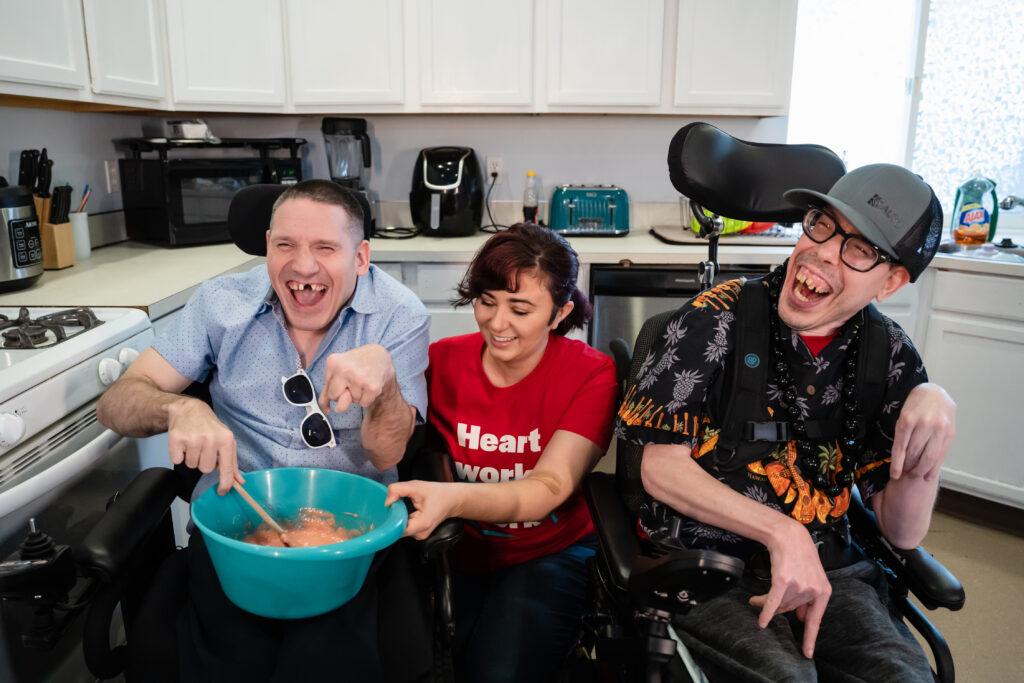
Do you have a loved one who is currently in, or might benefit from, a supported living program? Are you questioning how you can contribute to their success…help them achieve their goals?
Here’s a heartfelt response from the team at ALSO:
“Supported living is not a service – it’s a relationship. And families are an essential part of that relationship.”
ALSO has been supporting people living with intellectual and developmental disabilities (I/DD) for over 25 years. Since the beginning, we have been expanding to provide support services to eligible children and adults throughout Oregon. We know that supported living is strongest when individuals, families, and providers collaborate with a shared purpose.
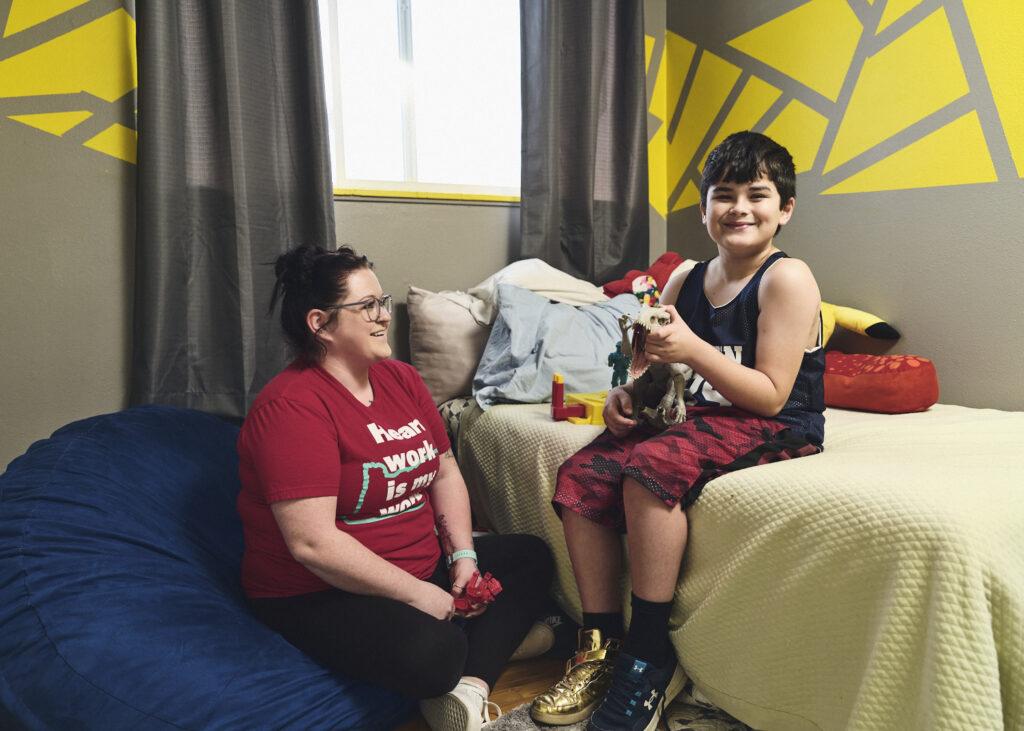
Family support is the foundational element in the success of loved ones with disabilities. They provide a strong source of love and encouragement. They advocate for disability rights in communities, workplaces, and schools, providing much-needed historical information to direct support professionals (DSPs), social workers, health care professionals, and other human services providers.
ALSO’s support services embrace person-centered values. This means that individuals with disabilities must have their voice heard and choices respected. Families are allies in helping those we support obtain a positive vision for the future based on choice, abilities, strengths, and the capacity to learn new skills.
Supported living is a model of providing assistance in which those with disabilities live in homes of their choosing with support tailored to individual needs. ALSO offers several types of supported living services.
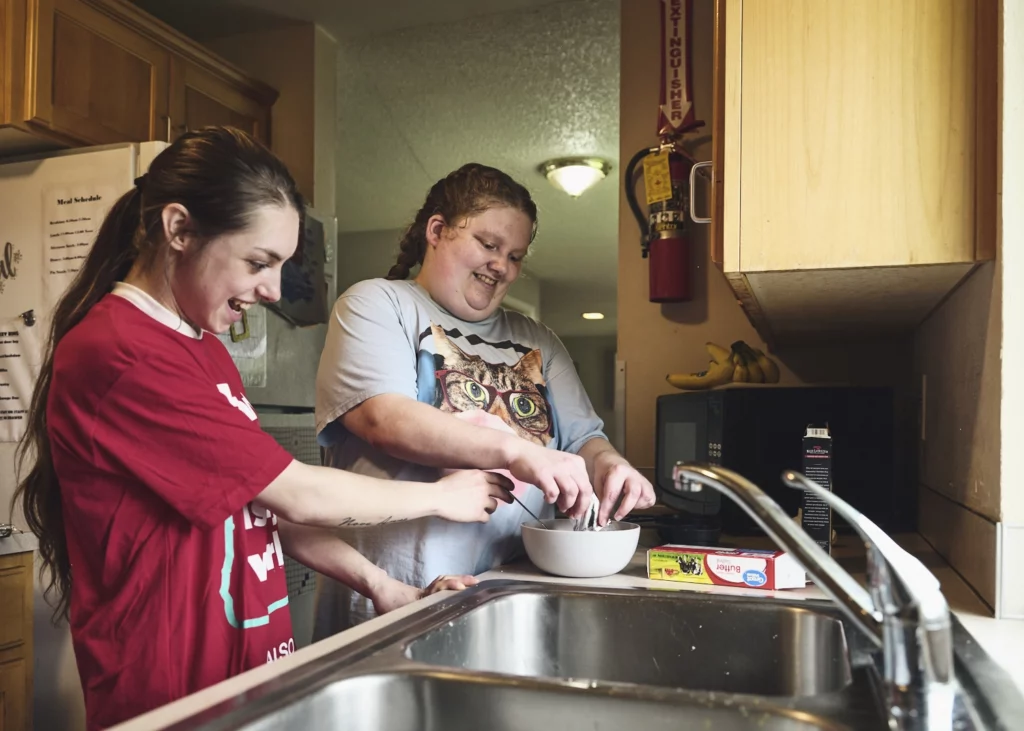
Supported Living: Assistance programs with a variety of self-care, work, academic, and recreational activities designed to support individuals in living their most independent and inclusive lives possible. These services are individualized and developed through collaboration with the ISP team and the individual.
Roommate Model: Cost-effective solutions to a major barrier to independent living: affordable housing!
24-hour: For those needing assistance around-the-clock.
Community Living: We go to your family member’s home, providing support and resources for anything that’s needed. For example:
The Oregon Department of Human Services has several programs that help persons with I/DD thrive in community settings. All disability services emphasize autonomy, dignity, and community integration.
Oregon’s Employment First Program is rooted in the acknowledgment that everyone, regardless of ability level, can contribute to their community.
HCBS works with community partners to provide Medicaid beneficiaries services in their homes and communities. The objective is to ensure that all types of services allow for the maximum level of community integration that fits individual needs and choices.
“The family is one of nature’s masterpieces.” George Santayana
Families play several crucial roles in the success of their loved ones with disabilities.
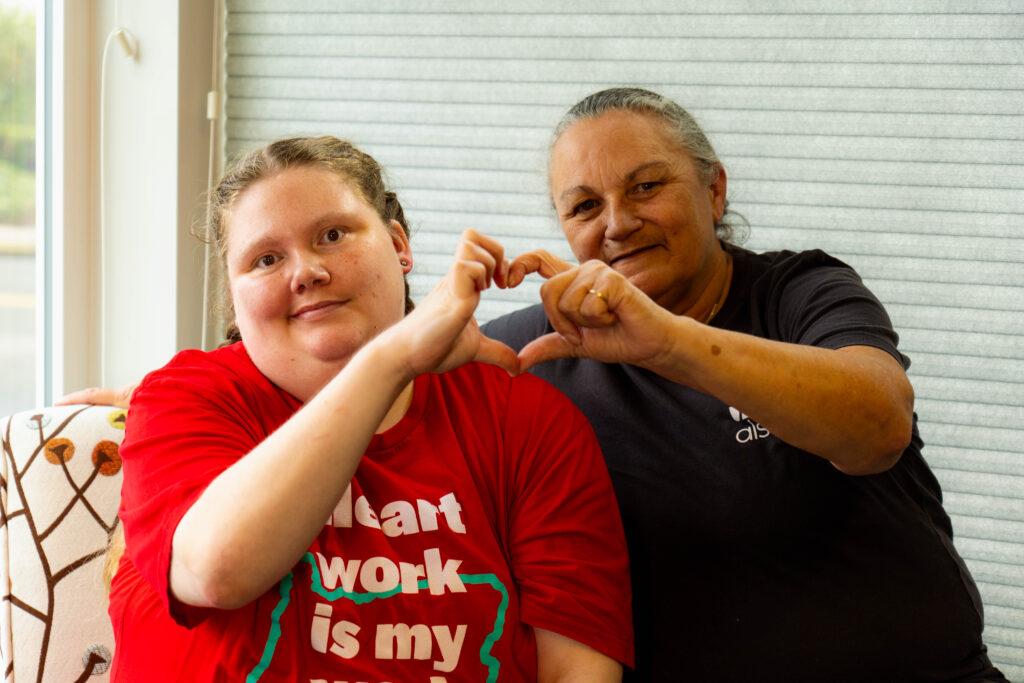
ALSO knows the challenges of shifting to out-of-home placements. Uncertainty and anxiety when transitioning from the family home is normal. It’s also an opportunity for growth, discovery, and trust-building.
Tip: Open, respectful communication between family caregivers and support providers builds lasting trust and goal alignment.
*Tip: Reach out to ALSO’s family liaison or support staff anytime. Building relationships early prevents misunderstandings later.
When families and support teams align around a loved one’s goals and dreams, outcomes are richer and more sustainable. From small wins (like taking a bus independently) to major milestones (getting that dream-job), families are the key witnesses and cheerleaders.
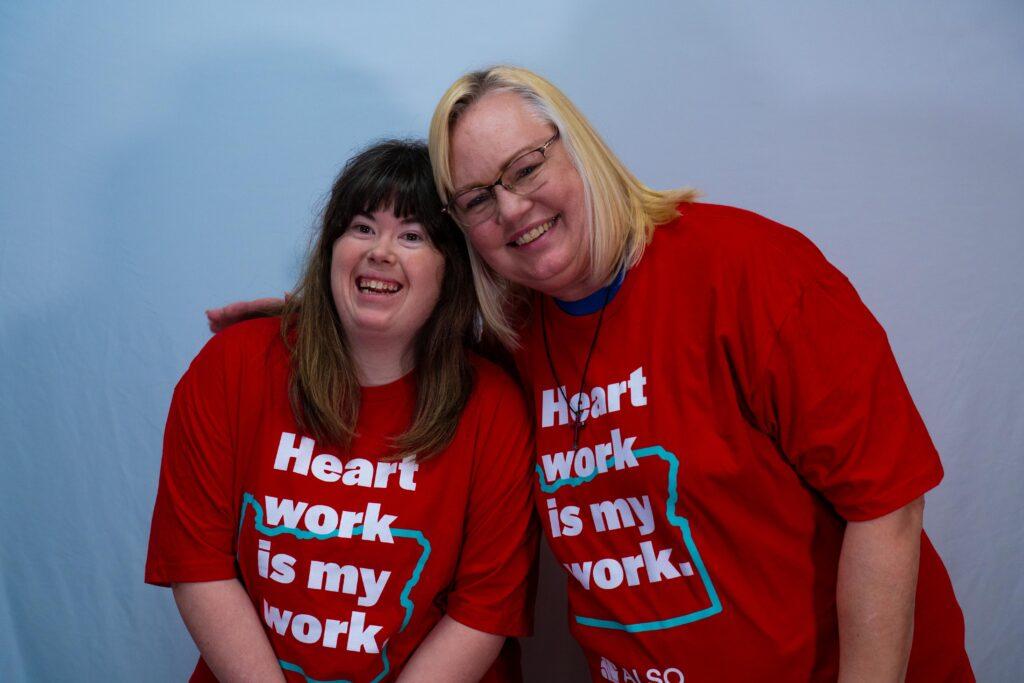
ALSO invites families to stay engaged, empowered, and open. Together, we’re co-architects of inclusive, person-driven living.

Sign up for our newsletter to get our latest news, content, and job opportunities.
Help us ensure that everyone has the same opportunities in their home, workplace and community. Let’s make dreams!
